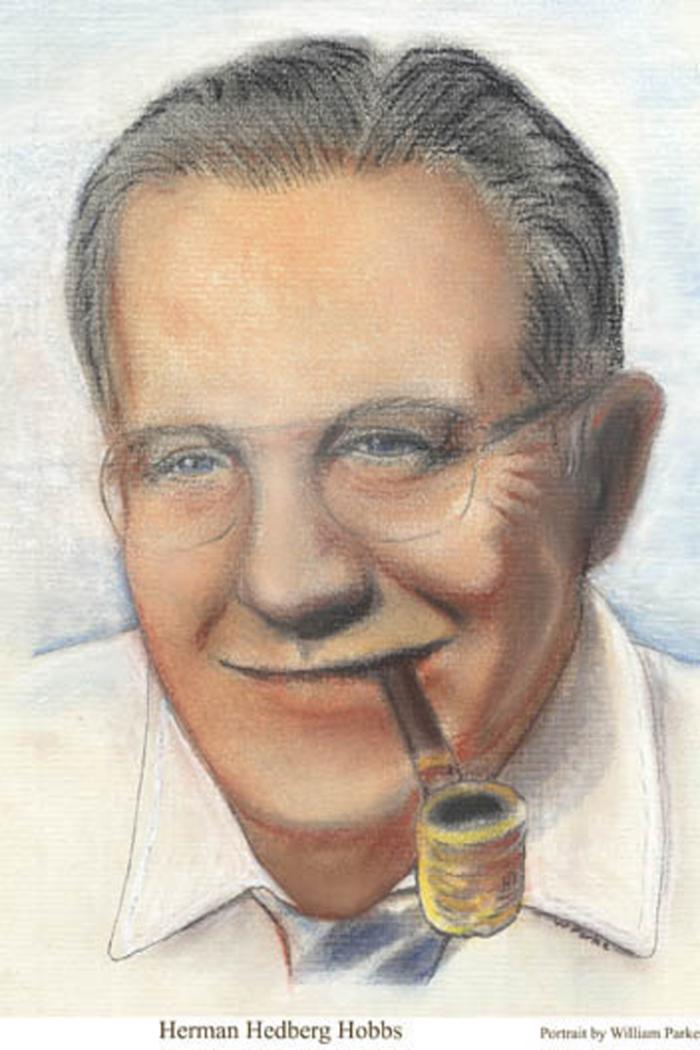Herman Hedberg Hobbs

Herman Hedberg Hobbs
Legacy Faculty, 1959-93
Legacy
Professor Herman Hobbs as a Teacher
Our distinguished Professor of Physics, Herman Hedberg Hobbs, could give a highly technical lecture on astrophysics and generate applause from 400 awe-struck students; applause for delivering ideas, principles, and examples with startling clarity; applause for his humor and instructive story-telling; applause for his evident intimacy with his audience; applause for unveiling the joy of learning. Herman epitomized a good teacher: One who sustains a deep understanding of his field; who freely shares his wisdom and knowledge; who cares about his charges; who holds a high but achievable standard; and who encourages those who wish to independently develop their own minds.
Insisting on showing his students the real nature of the universe, Herman avoided artificial art-forms. Instead, he employed 'live' demonstrations and physical instruments to reveal a special property or a general principle. His was a classical pedagogy. Humans deeply respond to direct interaction and long remember the impressions of first-hand experience. Herman skillfully drew from these human traits to impart his subject. Thousands of his past students over a span of 34 years revere "Professor Hobbs" with the same warm respect afforded Walter Cronkite, a respect born from careful truth and truthful caring.
Faculty Senate Tribute to Professor Herman Hedberg Hobbs
May 6, 1993
Professor Hobbs is retiring this year to become Emeritus Professor of Physics. His presence at our University is well known to students, faculty, and the administration by his intellectual strength, integrity, wisdom, and wonderful storytelling. His personal interest in the development of his students made his classes both popular and deeply edifying.
Professor Hobbs earned his Bachelor of Science from our University in 1953 and his Doctoral Degree in Physics from the University of Virginia in 1958. He joined our faculty in 1959 as an Associate Professor, then became Professor and Chairman of the Physics Department in 1960, serving in that capacity for ten years.
Through the years, Professor Hobbs has taught over 15,000 students in such diverse fields as quantum physics, solid-state physics, and astronomy. He astounded his colleagues by remembering a good fraction of the names of over 400 students per class he attracted to his astronomy lectures. In 1986, he received the Columbian College Award for Excellence in Teaching. During his career here, he continued active and funded research in the area of metal-whisker crystal growth. In the meantime, his considerable reasoning powers were called upon while serving on the Graduate Council, the Research Committee, on the Faculty Senate (for four terms: 1964-65, 1971-72, 1972-73, and 1974-75), as well as acting as chairman of numerous University committees. His special talks for the Alumni Association have been recognized by two Service Awards and four Certificates of Appreciation.
We expect Professor Hobbs' love of learning will continue into his retirement while he pursues his wide interests, including his research, astronomy, flying, and classical guitar.
2000, W.C. Parke

